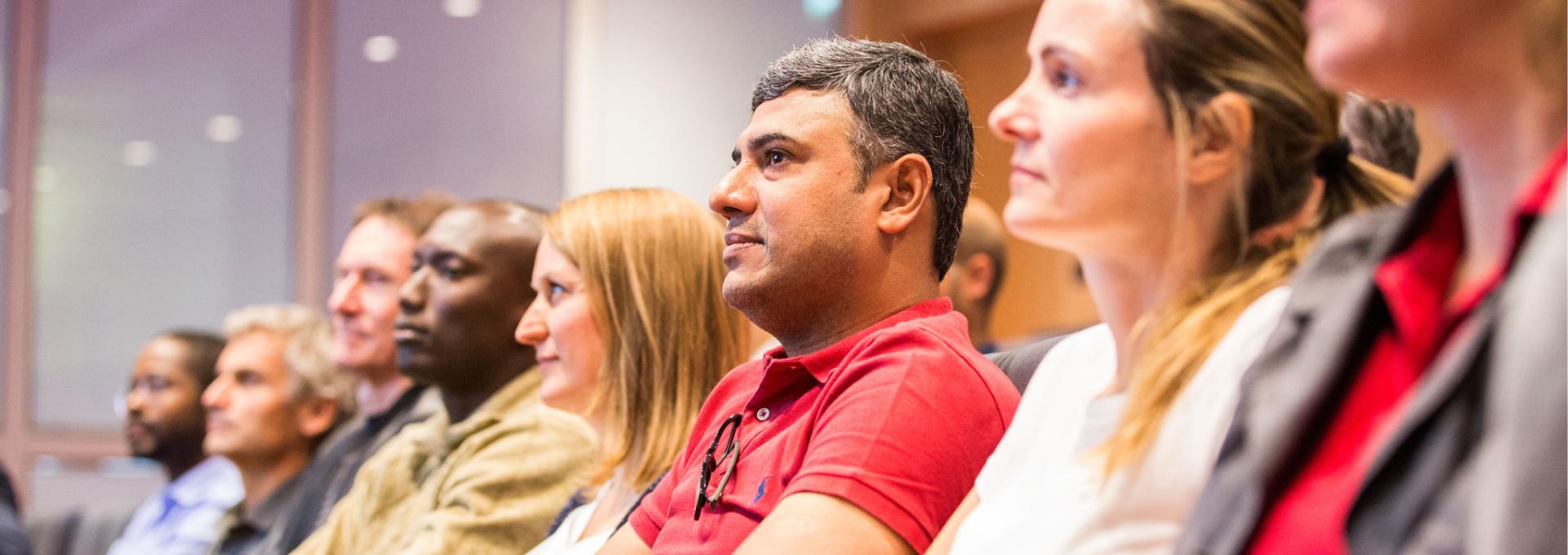FAQ
The main difference is the presence of "State of the art" modules dealing with major technological fields which are the foundation of many current innovations. These modules are produced by faculty -researchers from Polytechnique and other leading scientific institutions internationally.
As in an EMBA, there are courses on the fundamentals of management, but also many courses on the management of innovation, entrepreneurship and a curriculum on leadership and personal development.
Yes. This 14-month course is structured around 12 modules lasting 4 to 5 days. This rhythm therefore allows participants to combine this training with their professional obligations.
No ! We encourage anyone with a strong interest in new technologies to apply. We of course receive applications from engineers, but also from graduates of management schools, lawyers, doctors, various programs in humanities or even army, which allows us to have such diverse cohorts.
Beyond the training costs, the amount also includes many costs related to the program, such as meals and organized events, as well as accommodation for international modules. The transport costs as well as personal expenses are at the discretion of participant.
Yes. This program leads to a diploma and participation in all organized activities is therefore required. It is essential for success and both individual and collective enrichment.
A priori no. There will of course be some opportunities to pause, for processing emails in the evening, for example, but each participant have to make arrangements to be fully focused during these modules.
Modules in France will take place on the École Polytechnique campus and in partner institutions (research centers, incubators, etc.). Our last international modules took place in Germany at TU Munich (TUM), in the United States at UC Berkeley and in Singapore. These international destinations may be substituted depending on news and Polytechnique’s partnerships.
Essentially, they are teacher-researchers from the École Polytechnique. With the aim of giving participants direct access to the most cutting-edge research, we asked those who produce it directly to present it. Some other experts (team building, coaching, communication, etc.) are provided by specialized consultants.
Here are some examples of the faculty:
Professor Thomas Clausen: IoT
Computer science professor at the École Polytechnique in charge of the Cisco "Internet of Everything" Chair. Senior Member of the IEEE.
Professor Eric Moulines: Data Science
Professor of statistics at the Applied Mathematics Center of X, Member of the Academy of Sciences.
Professor Bernard Drévillon: New Energies
Specialist in the physics of thin films and nanomaterials. Vice-President of the Physics Department at X, Director of Education at IPVF, CNRS Silver Medal in 1995.
Professor Adbul Barakat: Biomedical Engineering
Research Director at CNRS, in charge of the AXA Chair in Cardiovascular Cell Engineering at École Polytechnique.
Professor Thierry Gacoin: New materials
Research Director at CNRS and Associate Professor in the physics and chemistry departments of the École Polytechnique, responsible for the "solid-state chemistry" group at the Condensed Matter Physics Laboratory.
This training leads to a diploma. This therefore requires real work and real availability during the modules. Our goal is by no means to exhaust our participants, but first and foremost to provide an intellectually and humanly stimulating experience.
The group project is an opportunity to concretely implement the lessons of the program and to carry out a project that is close to your heart. This can be a business creation, the development of an innovation in an existing business or a "regular" strategic project (geographic expansion, acquisition, etc.).
Several trends are emerging among our graduates: strong promotions within their company, mobility to other sectors or professions and also numerous creations of start-ups. It depends a lot on the personal and professional project of each participant. The objective is really to develop the capacities of leaders on themes with a strong technological dimension following the tradition of Polytechnique, for different types of organizations, public or private, national and international.
The minimum level required is a master's degree. The vast majority of our participants have a master's level (approximately 94%) or doctorate (6%), But we also accept profiles with a lower level of qualification as long as they have a rich background and a coherent professional project vis-à-vis the program.
Given the expected levels of professional and managerial seniority, the minimum age to apply is 30 years old. However, there is no maximum age limit. For your information, our participants have an average of 18 years of professional experience.
In addition to the various testimonials from graduates visible on our site and on the École Polytechnique's social networks, we regularly organize information sessions in which we involve alumni. This allows, on the one hand, to have their feedback, but also to interact directly with them by asking them your questions directly. Do not hesitate to register via this form!
As program’s modules are international, and as our faculty are international, the international component is essential in the Executive Master. A minimum level of English B2 (Common European Framework of Reference for Languages) is therefore expected. Our Admissions team can validate your language level through an interview or invite you to take a language test, depending on your background.
